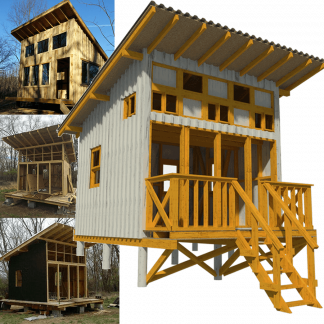Thailand, a country celebrated for its vibrant culture and stunning scenery, is now at the forefront of ecotourism. This initiative extends beyond a mere trend—it’s a dedicated pursuit to harmonize tourism with nature’s preservation. A range of apartments in Thailand for sale, all around the country can be eco-conscious and have eco-friendly amenities for residents and travellers alike. Let’s delve into Thailand’s approach to sustainable tourism and what it means for the conscious traveller.
The Allure of Ecotourism
Ecotourism is about more than minimizing environmental impact. It’s an immersive journey into local traditions, aiding in the preservation of nature, and ensuring that tourism yields positive outcomes for both the environment and indigenous communities. It’s travel with meaning.
Thailand’s Commitment to Sustainability
With measures like eradicating single-use plastics in nature reserves and fostering community-driven tourism, Thailand exemplifies eco-conscious travel. These efforts not only maintain the nation’s allure but also offer a unique and conscientious journey for visitors.
Eco-Living Properties
Eco-living properties represent a growing trend in the real estate market, offering a unique combination of sustainability, environmental responsibility, and modern living. These properties are not only appealing for those looking to reduce their ecological footprint but also present a promising opportunity for long-term investment. Here are key aspects to consider:
Increasing Demand
- Environmental Awareness: As global awareness of environmental issues increases; more people are seeking sustainable living options. This shift in consumer preferences suggests a growing market for eco-living properties.
- Energy Efficiency: Properties designed with energy efficiency in mind, such as those with solar panels or geothermal heating systems, are increasingly in demand. These features not only reduce the carbon footprint but can also significantly lower utility bills, making them attractive to potential buyers or renters.
Long-Term Value
- Durability: Eco-friendly materials often have a longer lifespan. For example, bamboo flooring is not only sustainable but also highly durable.
- Future Regulations: With the potential for stricter environmental regulations, owning a property that already meets high ecological standards could be a significant advantage.
Financial Incentives
- Tax Benefits: Some regions offer tax incentives for eco-friendly property investments, such as deductions for solar panel installations or energy-efficient upgrades.
- Lower Operating Costs: Reduced energy and water usage lead to lower operating costs, making these properties more cost-effective over time.
Market Trends
- Rising Popularity: The trend towards eco-living is not just a niche market anymore. It’s becoming mainstream, with an increasing number of developments focusing on sustainability.
- Innovation in Construction: Advances in technology and sustainable building materials are making eco-properties more affordable and accessible.
Social Responsibility and Image
- Corporate Responsibility: For investors, owning eco-friendly properties can enhance their corporate social responsibility profile.
- Appeal to Conscious Consumers: These properties are particularly attractive to a growing demographic of environmentally and socially conscious consumers.
Potential Risks and Considerations
- Initial Investment: Eco-living properties can be more expensive initially due to the cost of sustainable materials and technologies.
- Market Uncertainties: Like any investment, there are market uncertainties, and trends can shift. However, the growing global emphasis on sustainability suggests that eco-living properties will continue to be in demand.
Investing in eco-living properties can be a smart move for the long-term investor. Not only does it align with a growing global trend towards sustainability, but it also offers potential financial benefits through energy savings, tax incentives, and increased property values. As with any investment, it’s crucial to conduct thorough research and consider both the current market and future trends.
Adopting Eco-Friendly Practices
Adopting eco-friendly practices in Thailand, especially for tourists and expatriates, is an increasingly important aspect of experiencing the country responsibly. As Thailand continues to develop its ecotourism and sustainable living initiatives, there are numerous ways that individuals can contribute to these efforts. Here’s a more detailed look at how you can adopt eco-friendly practices in Thailand:
Sustainable Accommodation
- Eco-Lodges and Resorts: Choose accommodations that are committed to sustainability, such as eco-lodges, which often use renewable energy sources, water-saving devices, and provide organic food options.
- Community-Based Homestays: Staying in community-based homestays supports local economies and promotes cultural exchange while often being more environmentally friendly than conventional hotels.
Participation in Conservation Efforts
- Volunteering: There are numerous opportunities to volunteer in environmental conservation projects, such as reforestation, wildlife conservation, and beach clean-ups.
- Supporting Eco-Tourism Activities: Engaging in eco-tourism activities that are mindful of the environment and benefit local communities can make a significant positive impact.
Mindful Interaction with Wildlife and Nature
- Responsible Wildlife Tourism: Avoid attractions that exploit animals and instead support wildlife sanctuaries or national parks that prioritize animal welfare and conservation.
- Respecting Natural Sites: When visiting natural sites, such as beaches, forests, and coral reefs, it’s important to adhere to guidelines that protect these environments.
Environmental Education and Awareness
- Learning About Local Practices: Educate yourself about Thailand’s environmental challenges and initiatives. This knowledge can help you make more informed choices during your stay.
- Sharing Knowledge: Spread awareness by sharing your experiences and knowledge of sustainable practices with other travellers and locals.
Your Impact as a Sustainable Traveller
Every Step Counts
Your travel choices in Thailand can significantly aid in the sustainability of the regions you visit. By opting for eco-conscious accommodations, respecting local traditions, and reducing waste, you become an agent of positive change.
Embrace the Eco-Conscious Movement
As an eco-traveller in Thailand, you’re part of a worldwide movement towards responsible tourism. It’s a commitment to leaving a beneficial footprint and creating memories that are as impactful as they are beautiful.
Sustainable Travel Checklist for Thailand
| Action | Contribution |
| Booking eco-friendly lodgings | Bolsters local economies and environmental endeavours |
| Consuming local organic produce | Decreases carbon emissions and supports regional farmers |
| Participating in green activities | Enhances environmental awareness and conservation |
| Utilizing sustainable products | Reduces ecological damage and waste |
Wrapping Up: Thailand’s Eco Journey
Thailand is more than a destination; it’s a trailblazer in the realm of eco-tourism. By choosing to traverse this exquisite country through an eco-conscious lens, you’re not just ensuring an extraordinary journey but also aiding in the cultivation of a more sustainable future. Whether it’s through residing in an eco-resort, engaging in community conservation efforts, or simply embracing an eco-friendly way of life, your travels or investments in Thailand will stand as a testament. Learn more about eco-friendly properties in Thailand at thailand-real-estate.








